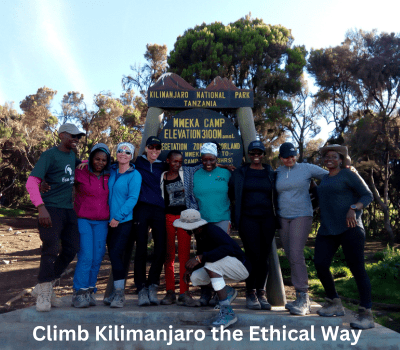Can I Climb Kilimanjaro Afrika without Prior Climbing Experience?
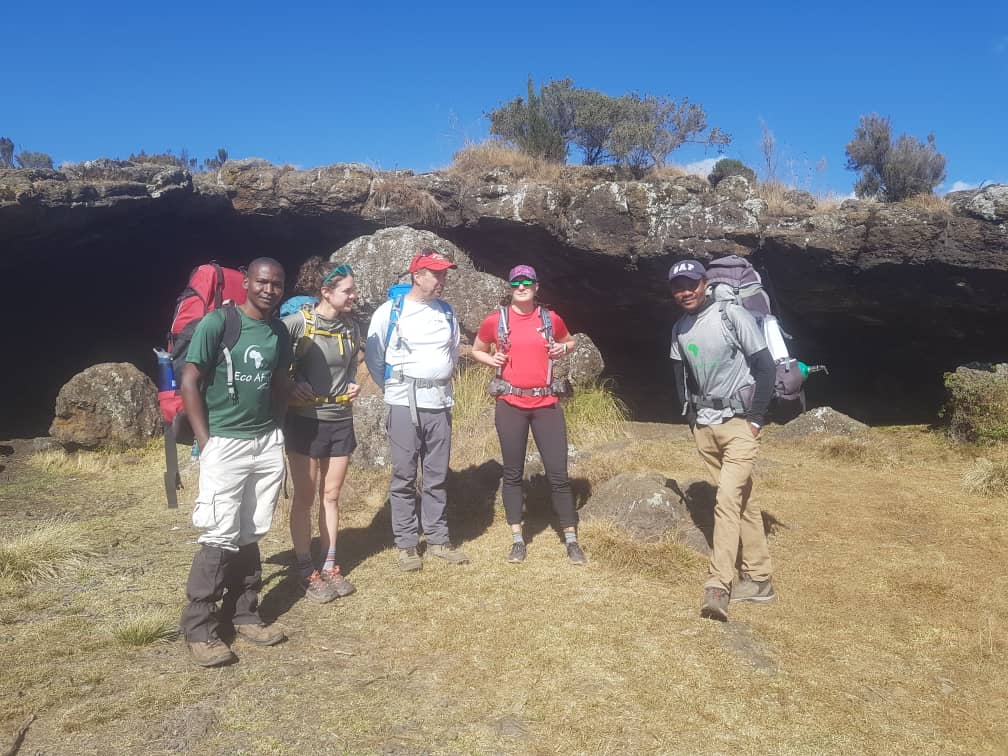
Introduction
The Dream of Summiting Africa’s Highest Peak
For many adventurers, the thought of standing atop Mount Kilimanjaro — the highest freestanding mountain in the world — is an irresistible dream. Kilimanjaro Afrika attracts first-time trekkers, bucket-list dreamers, and seasoned travelers alike. But one question echoes louder than the rest: “Can I climb Kilimanjaro Afrika without prior climbing experience?”
Short answer? YES, you absolutely can. Thousands of people from all walks of life summit Kilimanjaro every year with zero previous mountaineering experience. However, preparation is key to turning that dream into reality.
Kilimanjaro: A Unique Non-Technical Climb
Unlike mountains like Everest or Denali, Kilimanjaro is considered a non-technical mountain. That means you don’t need ropes, ice axes, crampons, or specialized climbing skills. Kilimanjaro is a trekking mountain — a long, steady walk uphill through diverse climate zones.
But make no mistake: just because it doesn’t require technical skills doesn’t mean it’s easy. Altitude, stamina, mental strength, and the right guide team (like Eco-Africa Climbing) are essential for success.
Is Prior Climbing Experience Required?
Why Technical Skills Are Not Necessary
There’s no rock climbing, no vertical walls, no glacier travel on Kilimanjaro. The routes are well-established trails, similar to rugged hiking paths in national parks. Even summit night, the hardest part of the climb, involves hiking steep switchbacks — not technical mountaineering.
Your success doesn’t depend on mastering technical climbing skills — it depends on good preparation, proper acclimatization, and mental resilience.
What Matters More: Endurance and Willpower
Endurance is the name of the game. Kilimanjaro climbs typically take 6–9 days, requiring you to hike 5–8 hours daily — sometimes more on summit night. Prior experience on multi-day hikes, back-to-back hiking days, or endurance sports (cycling, swimming, running) will help, but they aren’t mandatory.
If you can hike steadily for 6–8 hours in mixed terrain while carrying a light daypack, you’re ready for Kilimanjaro! Mental strength and positive attitude are just as important as physical fitness.
Understanding the Challenge of Kilimanjaro
Altitude: The Real Test
The biggest challenge on Kilimanjaro isn’t the steepness — it’s the altitude. At 5,895 meters (19,341 feet), oxygen levels are about 50% of what you breathe at sea level. This can cause Acute Mountain Sickness (AMS) — symptoms like headaches, nausea, dizziness, and fatigue.
Altitude sickness affects everyone differently. Even ultra-marathoners sometimes struggle, while first-time trekkers often summit successfully. Altitude tolerance has little to do with prior climbing experience.
Learn more about altitude sickness management in our complete guide: Kilimanjaro Altitude Sickness.
Trekking vs. Climbing Explained
It’s important to understand the difference:
- Technical climbing requires special skills (ropes, ice axes, belaying, crevasse rescue).
- Trekking means sustained walking on uneven trails, often at altitude, with minimal technical challenges.
Kilimanjaro is a demanding high-altitude trek — not a mountaineering expedition. This makes it accessible to determined hikers from all over the world.
How Eco-Africa Climbing Prepares First-Time Climbers
Personalized Pre-Climb Support
At Eco-Africa Climbing, we specialize in helping first-time trekkers reach Uhuru Peak safely and confidently. When you book with us, you get:
- Pre-climb consultations and advice
- Custom gear packing lists (check our Gear List)
- Training tips and fitness guidance (download our 12-Week Training Program)
- Support for all your questions about visas, vaccinations, and travel
Professional Guides, Health Checks, and Safety Focus
Our experienced mountain guides are certified Wilderness First Responders (WFR) and conduct daily health checks. We carry:
- Pulse oximeters to monitor oxygen saturation (Learn about our Pulse Oximeter use)
- Emergency oxygen tanks for altitude emergencies (See our Emergency Oxygen Protocol)
- Altitude medication advice like Diamox if needed
We even have access to Helicopter Rescue services in case of severe emergencies. Safety first — always.
Physical Fitness Requirements
Minimum Fitness Level
You don’t need to be an Olympic athlete to climb Kilimanjaro Afrika, but you do need to be in decent shape. A reasonable fitness level means:
- Walking for 6–8 hours a day on uneven terrain
- Carrying a light daypack (5–7 kg)
- Handling sustained effort at altitude where oxygen levels are low
If you can comfortably hike 8–12 kilometers (5–7 miles) on consecutive days at home, you’re on the right track. Consistency matters more than speed.
Recommended Training Plan
Training for Kilimanjaro should start at least 8–12 weeks before your climb. Focus on:
- Endurance: Long hikes, brisk walking, or slow jogging
- Leg strength: Squats, lunges, stair climbing
- Core stability: Planks, sit-ups, stability exercises
- Cardiovascular fitness: Cycling, swimming, running
For a detailed plan, download our expert-created 12-Week Kilimanjaro Training Program and get mountain-ready the right way.
Building Altitude Tolerance
If you live at sea level, don’t worry—you can still acclimate on the mountain itself. Choose longer routes (7+ days) like the Lemosho Route or Northern Circuit Route to allow your body time to adjust.
Essential Skills and Knowledge You’ll Need
Hiking Skills
While no technical climbing is involved, basic hiking skills are crucial:
- Walking efficiently over rocky, muddy, and uneven trails
- Using trekking poles properly to save energy
- Maintaining a steady, sustainable pace without rushing
Pacing (“Pole Pole” Strategy)
One of the first Swahili phrases you’ll learn is “pole pole”—which means “slowly, slowly.” This is the secret to altitude success. Moving too quickly increases your risk of altitude sickness.
Your guides will enforce a slow pace, especially during summit night. Trust them—they know what it takes to get you safely to the top!
Listening to Your Body
Altitude symptoms can sneak up quietly. First-time climbers must:
- Pay attention to headaches, nausea, dizziness
- Communicate openly with guides about any discomfort
- Prioritize hydration and nutrition daily
Our team at Eco-Africa Climbing performs regular health checks and uses pulse oximeters to monitor your body’s response to altitude.
Mental Preparation for Kilimanjaro
Mind Over Mountain
Your legs carry you up the mountain, but your mind carries you through the toughest moments. Mental toughness is key to summit success, especially on long, cold summit nights.
Visualize your journey. See yourself pushing through tough sections, breathing steadily, and stepping onto Uhuru Peak. Build mental habits that turn challenge into triumph.
Dealing with Discomfort
Kilimanjaro isn’t a comfortable luxury vacation. Expect:
- Cold nights
- Dusty trails
- Fatigue and sore muscles
Accept discomfort as part of the experience. Focus on small goals: reaching the next break spot, the next campsite, the next ridge. Celebrate every step.
Building Mental Resilience
Mental training tips include:
- Practice mindfulness during workouts and hikes
- Use positive self-talk (“I am strong, I am capable”)
- Break down each day into manageable parts
Remember: You don’t have to be fast, you just have to keep going.
How Altitude Affects First-Time Climbers
Symptoms of AMS (Acute Mountain Sickness)
Altitude sickness is common above 2,500 meters. Symptoms include:
- Headaches
- Loss of appetite
- Difficulty sleeping
- Shortness of breath
- Nausea or dizziness
How to Prevent and Manage Altitude Sickness
To minimize risk:
- Choose a longer route for better acclimatization
- Walk slowly (“pole pole”)
- Stay hydrated and eat well
- Communicate openly with guides about symptoms
- Consider using Diamox under medical advice
Our team is trained to monitor your health daily and react fast if symptoms escalate.
Link to Full Altitude Sickness Guide
For a complete breakdown on signs, treatment, and emergency protocols, visit our detailed guide here: Kilimanjaro Altitude Sickness.
What to Pack for Your First Climb
Gear Checklist for Beginners
Packing right is crucial for a successful Kilimanjaro Afrika climb, especially for first-time trekkers. A few essential gear items you must have include:
- Layered clothing system (base, mid, outer layers)
- 4-season sleeping bag (rent a Mountain Hardwear Lamina™ -29°C bag for $50 if needed)
- Waterproof hiking boots, well broken-in
- Headlamp with spare batteries
- Daypack (25–35 liters)
- Hydration system (3–4 liters per day)
- Trekking poles for balance and joint protection
Download our full detailed list here: Kilimanjaro Gear List.
Rental Gear Options
At Eco-Africa Climbing, you can rent high-quality gear directly in Moshi. We offer:
- Sleeping bags (-29°C rating)
- Warm jackets and waterproof gear
- Trekking poles
- Daypacks and duffel bags
Check our full rental price list here: Gear Rental Prices.
Best Routes for Beginners
Lemosho Route
The Lemosho Route is highly recommended for first-time climbers. Why?
- Gradual ascent allows better acclimatization
- Stunning scenery and varied landscapes
- Lower traffic compared to Machame
Northern Circuit Route
The Northern Circuit Route is the longest route but offers the highest success rate due to excellent acclimatization.
- 9 days on the mountain = more time to adjust
- Incredible views on the quiet northern slopes
- Fewer crowds, more solitude
Marangu Route
Known as the “Coca-Cola Route,” Marangu Route offers hut accommodation instead of tents.
- Comfortable sleeping in permanent huts
- Shortest route (5–6 days), but acclimatization must be managed carefully
- Less camping logistics needed
Common Mistakes First-Time Climbers Make
Underestimating the Mountain
Many first-timers think “walking = easy,” but Kilimanjaro is a real endurance challenge. Train properly, acclimatize patiently, and respect the altitude.
Overpacking or Underpacking
Bring what’s necessary—but no more.
- Too much gear = heavy loads
- Too little gear = cold, uncomfortable nights
Use our official Gear Checklist to get it exactly right!
Poor Acclimatization Strategies
Choosing a short, cheap route may seem tempting, but it drastically reduces your success chances. Always opt for 7+ day climbs like Lemosho or Northern Circuit.
Success Stories: First-Time Climbers Who Summited
Sarah, 32, from USA:
“I had never hiked above 1,000 meters before Kilimanjaro! Eco-Africa Climbing guided me every step. Their patience, encouragement, and attention to my acclimatization made all the difference. I cried tears of joy on the summit!”
Michael, 58, from USA:
“I was worried about my age and lack of experience, but my guide from Eco-Africa Climbing was incredible. We took it slow, stayed hydrated, and made it to Uhuru Peak safely. Truly life-changing.”
FAQs About First-Time Climbs
Can beginners really summit Kilimanjaro?
Yes! Thousands of beginners summit successfully every year. With good preparation, a slow pace, and the support of an experienced company like Eco-Africa Climbing, you can too.
How fit do I need to be to climb Kilimanjaro?
You should be able to hike for 6–8 hours a day carrying a small daypack. Focus on endurance, not speed. Check out our 12-week training program to prepare properly.
What is the hardest part of Kilimanjaro?
Summit night is the toughest part—cold, steep, and long. But with mental resilience, slow steady walking (“pole pole”), and excellent guides, you can overcome it.
Which Kilimanjaro route is best for first-time climbers?
The Lemosho Route and the Northern Circuit Route are best for beginners due to their gradual ascent and higher success rates.
Is altitude sickness guaranteed?
No, but mild symptoms are common. Proper acclimatization, a slow pace, hydration, and possibly Diamox can help manage it.
Helpful Resources for First-Time Kilimanjaro Climbers
- Full Kilimanjaro Gear List
- 12-Week Training Program
- Altitude Sickness Guide
- Tipping Guidelines
- What to Do After Your Climb
- KPAP – Kilimanjaro Porters Assistance Project
- TANAPA – Tanzania National Parks Authority
Conclusion: No Experience? No Problem!
You don’t need prior climbing experience to summit Kilimanjaro Afrika—you need heart, commitment, and the right support team. With a well-planned trek, proper fitness preparation, mental resilience, and the guidance of an expert local company like Eco-Africa Climbing, you can stand proudly on the Roof of Africa.
Are you ready to take the first step toward your greatest adventure?
Contact Eco-Africa Climbing today and let’s turn your dream into a real summit success!
Share:
Related Posts
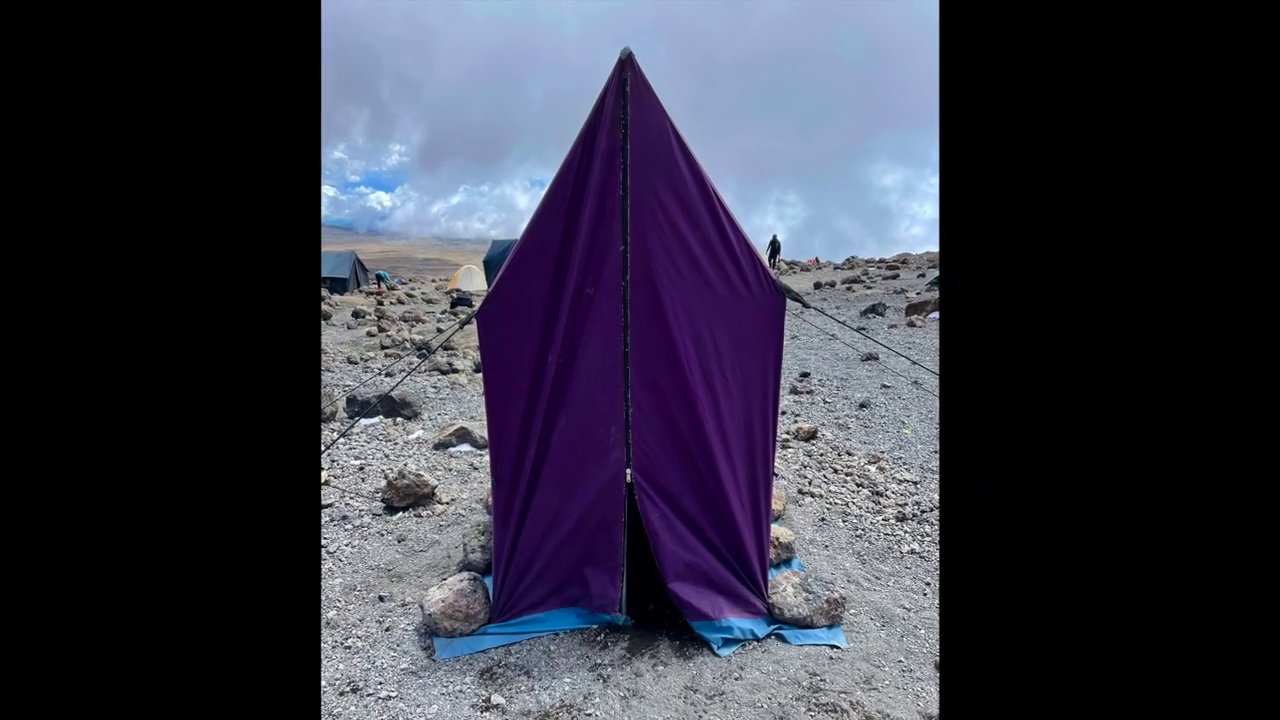
bathroom on mountain kilimanjaro
Bathroom on Mountain Kilimanjaro: What to Expect and How to Prepare Introduction One of the most common — and least discussed — questions from people
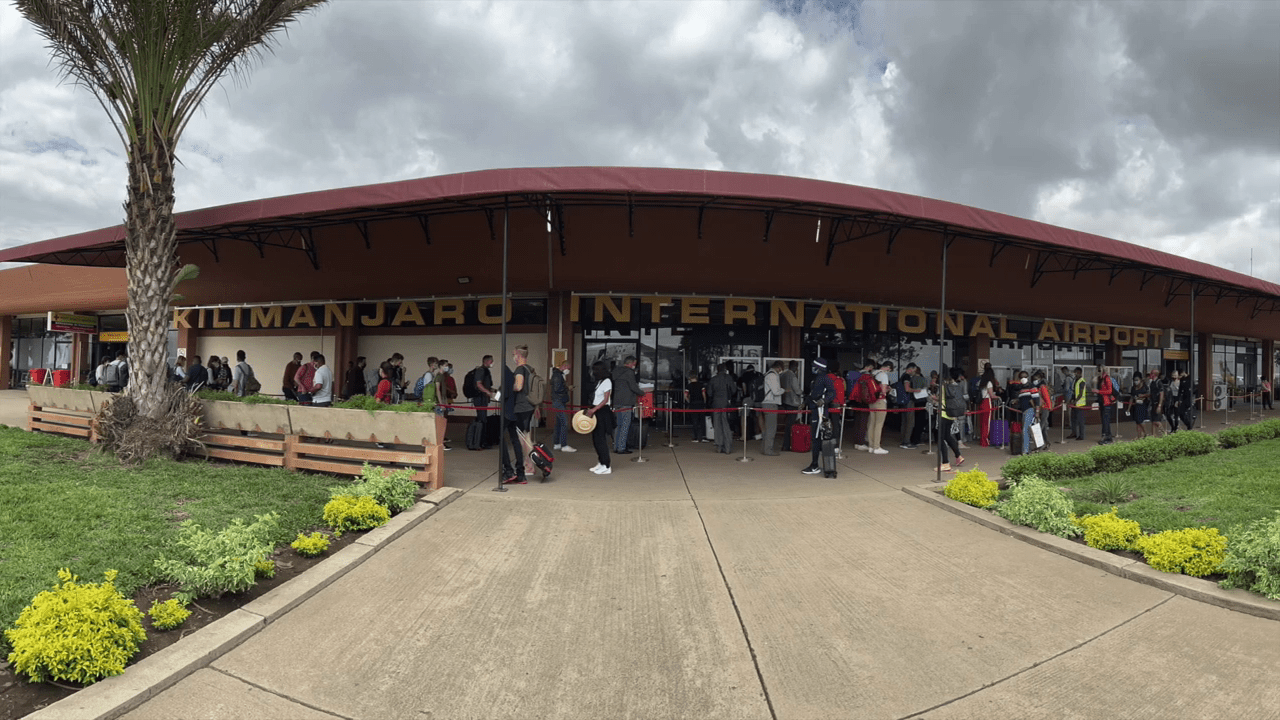
Are Guides Readily Available in Tanzania Without Prior Booking?
Are Guides Readily Available in Tanzania Without Prior Booking? Introduction: Should You Risk Climbing Without Pre-Booking? Climbing Mount Kilimanjaro is a dream for many adventurers.
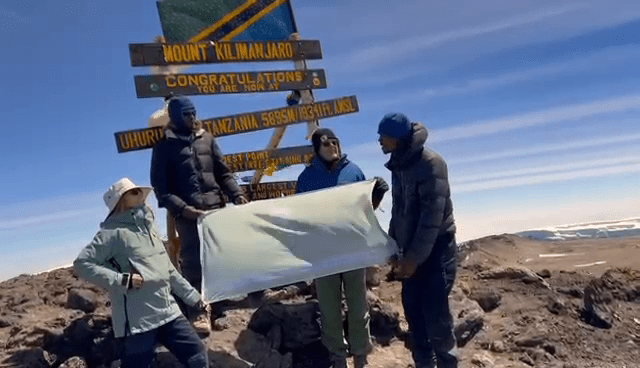
How Can I Find a Reliable Local Guide for My Kilimanjaro Expedition?
How Can I Find a Reliable Local Guide for My Kilimanjaro Expedition? Introduction: Why the Right Guide Is Key to Kilimanjaro Success Climbing Mount Kilimanjaro
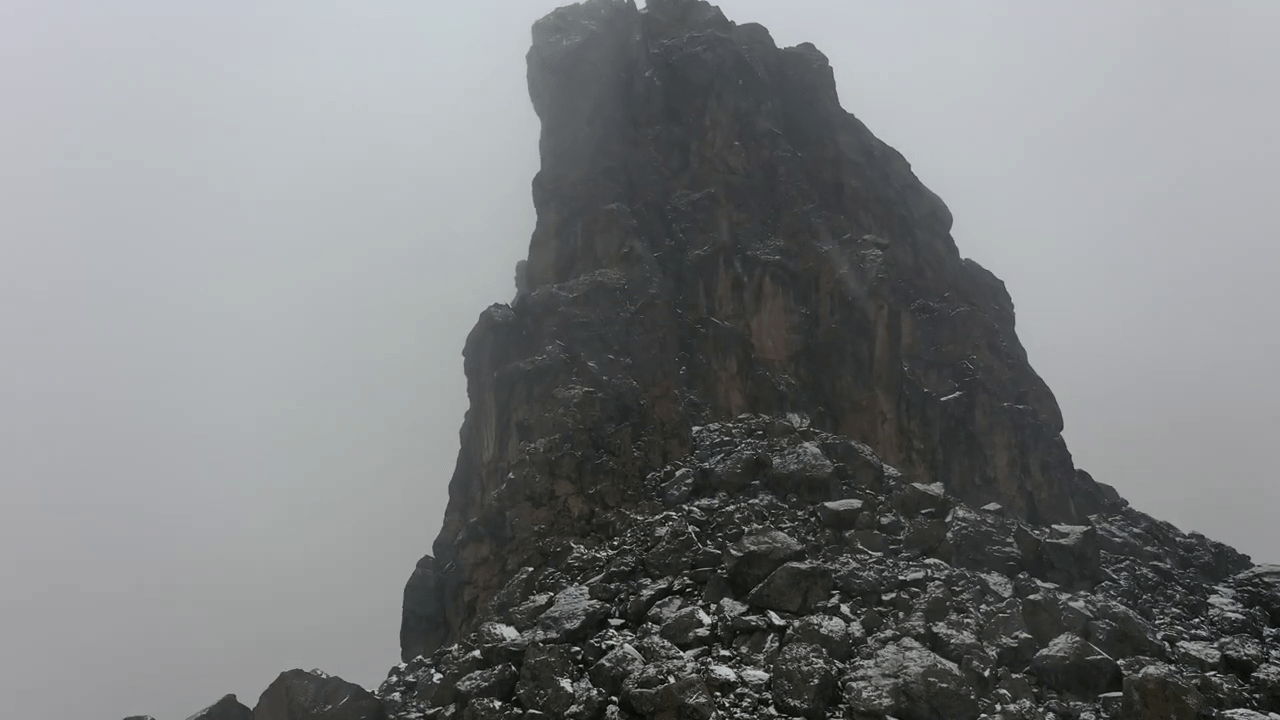
Is Climbing Kilimanjaro Dangerous for Individuals Without Mountaineering Experience?
Is Climbing Kilimanjaro Dangerous for Individuals Without Mountaineering Experience? Introduction: The Myth of Danger and Experience Many aspiring adventurers wonder if climbing Mount Kilimanjaro is
